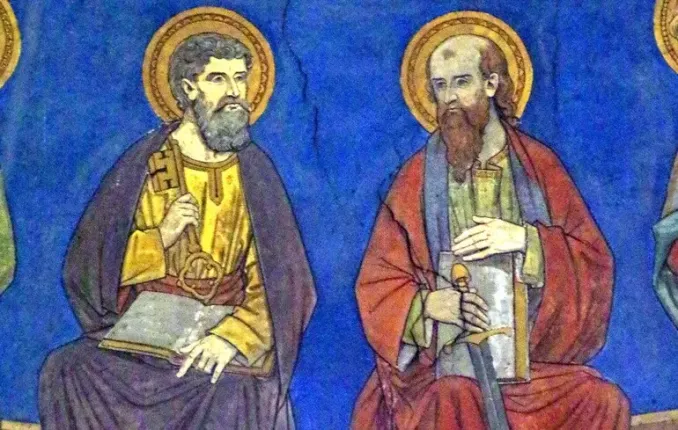St

Peter and Paul’s Day: History and Traditions of Celebrations Every year on June 29th, Eastern Christianity commemorates the Day of the Apostles Peter and Paul — a special holiday honoring their sacrificial death and transition into eternal life. It is one of the oldest and most revered dates in the church calendar, reminding believers of the faithful disciples of Jesus Christ who dedicated themselves to spreading the Christian teachings and accepted martyrdom for the sake of faith. On this day, worshippers remember their heavenly guardianship and their heroism in the fight for truth and justice, as this day symbolizes the victory of spiritual light over darkness. The history of celebrating the Day of the Apostles Peter and Paul has roots in biblical legends and historical sources, which emphasize the significance of these figures in the Christian world. According to biblical tradition, the first apostles were not always followers of Christ — both Peter and Paul initially bore different names: Simon and Saul. They became known as Peter and Paul after their baptism, which marked their spiritual transformation. Tradition attributes the deaths of both apostles to a nearly simultaneous martyrdom — in Rome, around the year 67 AD. Many legends and tales recount the circumstances of their passing. Peter, formerly a fisherman on Lake Gennesaret, was the first to call Jesus the Messiah and Teacher. When his teacher was imprisoned, Peter denied Christ three times, yet later, as a leader, he tirelessly preached the Gospel along the shores of the Mediterranean and in various countries — Antioch, Asia Minor, Egypt, Greece, Rome, Spain, Carthage, and Britain. His preaching journey ended in Rome, where he was crucified upside down at his own request, considering himself unworthy to die as Christ did. Unlike Peter, Paul was not initially a disciple of Jesus. His path to Christian faith was filled with trials; he was well-educated and started as a persecutor of Christians. However, on his way to Damascus, he encountered the Savior, and this moment proved to be a turning point — Paul was baptized and began actively spreading the Christian faith around the world. His missionary work covered the entire Mediterranean — from his sermons in Cyprus, Asia Minor, Macedonia, and Greece, to the writing of 14 epistles included in the New Testament. His life tragically ended in 67 AD, when he was martyred by the sword — a martyr’s death, a well-deserved reward for his service to Christ. What Not to Do on the Day of the Apostles Peter and Paul According to ancient traditions and church statutes, this day has a special character. Believers think that it is forbidden to engage in heavy physical work on this holiday — only light and minimal activities are permitted. It is also advised to avoid household chores, laundry, cleaning, or crafts, as these are considered signs of neglect and ingratitude toward the holy day. On this day, it is prohibited to curse, clarify relationships through arguments, or spread gossip — negative words and conflicts are thought to disturb spiritual harmony. Swimming in open waters is discouraged — since the apostles are considered patrons of sailors and maritime transportation, there was a tradition to swim on this day to prevent water from 'taking them as victims.' According to folk wisdom, after the festive meal, it is forbidden to take leftovers from the table — it is believed that they remain for deceased relatives to maintain a spiritual connection with them. Thus, the Day of the Apostles Peter and Paul is not only a day to remember the heroic path of the first Christian missionaries but also a time for deep spiritual traditions and particular prohibitions that help preserve spiritual and physical health, and to recall those who dedicated their lives to serving God and mankind.

